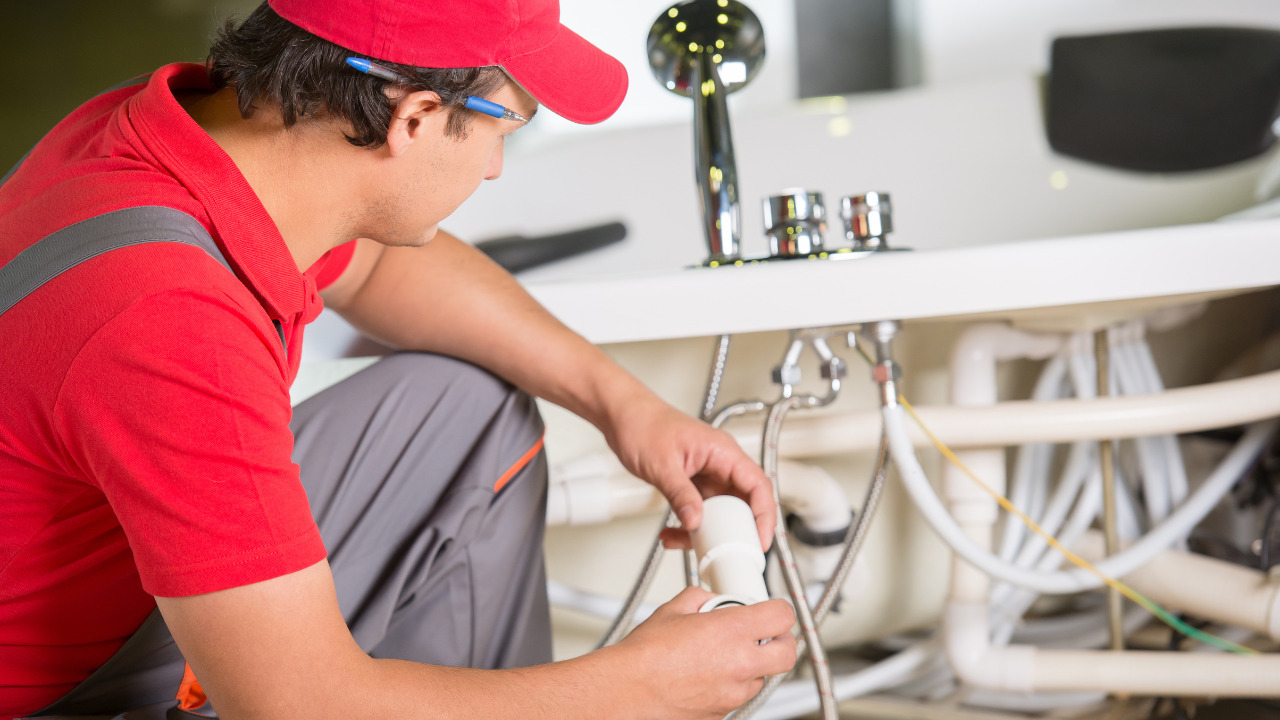If you enjoy working on plumbing projects yourself and don’t mind heights, becoming a roof plumber could be a great fit for you. Roof plumbers install and maintain drainage systems on the roofs of various types of buildings.
Knowing what kind of training and qualities roof plumbers need might help you determine if you’re a good fit for the job. Roof plumbers work on drainage systems on all types of structures’ roofs. This essay will go over how to become a roof plumber and answer some frequently asked questions.
Table of Contents
The Basic Responsibilities Of Plumber
Roof plumbers operate on gutters, downpipes, eaves, and rainwater tanks, among other roof drainage systems. They may attempt to avoid water damage and leaks in new and existing houses and businesses.
- Determining the layout of plumbing systems and materials by studying blueprints, drawings, and specifications
- Laying out and installing hot and cold-water systems, as well as associated equipment; and installing water-based fire protection systems, such as fire hydrants, hose reels, and sprinkler systems
- Plumbers are designed and installed by plumbers, sanitary plumbing and water supply systems, discharge pipes, and sanitary fittings.
- Soil and trash stack fabrication and installation
The Completion Of High School Degree
After finishing year ten and turning 15, you can leave high school and work as an apprentice. This is something that many prospective roof plumbers do to focus on their apprenticeships. You might, however, stay in high school and begin a school-based apprenticeship in years 11 and 12 to earn your secondary school diploma.
Find Apprentice From A Licensed Plumber
Look for a licensed roof plumber who will take you on as a trainee. You might be able to find a supervisor through a local Group Training Organization or Apprenticeship Network provider. You’ll be working under the supervision of a licensed plumber throughout your apprenticeship.
With a Certificate in Roof Plumbing, you’ll finish your apprenticeship. You must first receive a tradesperson’s permit from your state to work as a roof plumber. A general construction induction card, often known as a white card, is also required to work on construction projects.
What Are The Basic Required Skills For The Plumbers?
Roof plumbers are experts in the workings of roofing constructions and materials. This makes it easier for them to choose, handle, and cut materials, including metal and polycarbonate.
They also understand how rainwater behaves under various situations, such as temperature and weather. They use their technical knowledge to interpret technical drawings and blueprints as well.
Problem-Solving Techniques
Roof plumbers use problem-solving skills to find the best solutions for their customers’ problems. They might assist them with locating and repairing leaks, improving drainage, or capturing as much rainwater as feasible. They also ensure that their solutions are successful and cost-effective for their customers.
Management Skills
Roof plumbers with good time management abilities can finish a range of services ahead of schedule for their clients. They follow a systematic and logical process. They can also work efficiently throughout the project to guarantee that work is completed on time and at the high standard their clients need.
Roof plumbers with good time management abilities can build a professional reputation.
Questioning And Inspecting Skills
Roof plumbers need good communication skills to understand the needs of each client. To gather the information students, need to finish each activity, they employ active listening and questioning abilities.
To ensure the safety of everyone involved in a project, it is critical for team members and contractors to communicate efficiently. Roof plumbers with strong communication skills may instruct new apprentices more effectively.
Safety Practices
Roof plumbers are aware of important occupational health and safety procedures. These techniques allow them to work safely on roofs and with tools.
Tin snips and pipe benders are among the tools they can master. When conducting hazardous jobs, such as welding metal pieces together, team members can also learn and observe safety regulations and wear protective clothes.
Reliability
Roof plumbers have earned clients’ trust by completing projects on time and within budget. When requested, they provide quotations, come on time at the project site, and operate efficiently while there. They can also perform their work to a high standard, ensuring that the client does not have to deal with future repairs or water damage.
Conclusion
A roof plumber differs from a plumber in that they work on various fixtures around the house. Plumbers work on taps, sinks, and toilets, while roof plumbers work on gutters, downpipes, eaves, and rainwater tanks. Roof plumbers work primarily on roofs and are therefore exposed to the elements. Plumbers typically work in kitchens and laundry rooms. To acquire their specific responsibilities, both professions require separate training.





